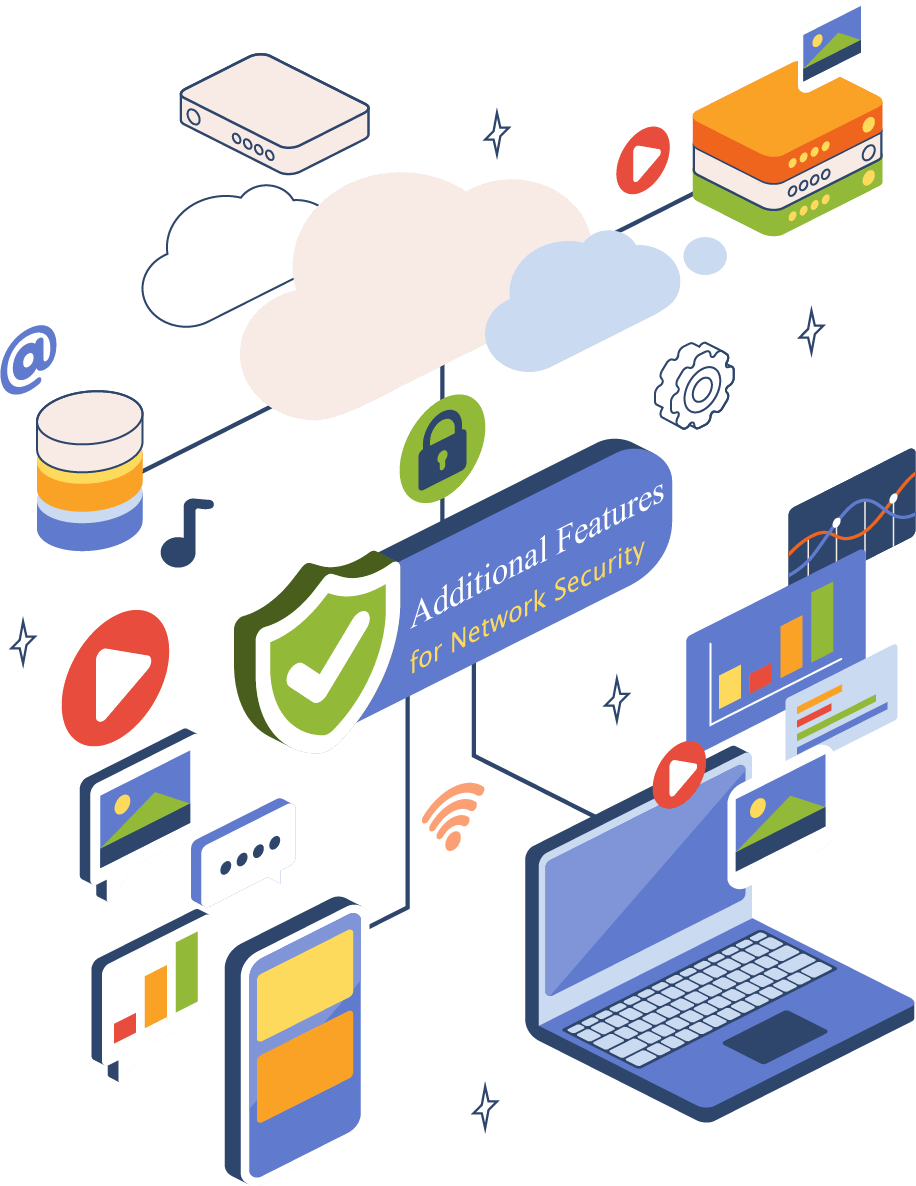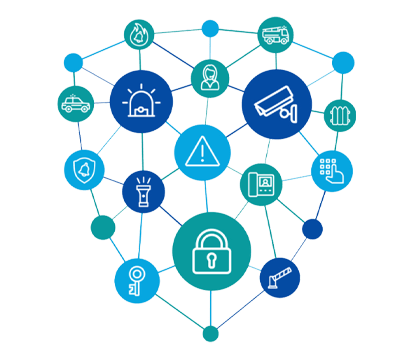Home » Network Access Control (NAC)
Network Access Control (NAC) refers to a comprehensive approach that governs and manages the authentication and authorization of devices seeking access to a network. It encompasses various techniques and technologies to ensure that only authorized and secure devices can connect and communicate within a network environment.
Build Secure Boundaries With Network Access Control And Reduce Risk
Many devices are vulnerable to various types of risks associated that can make a great impact on the performance of the configured one. So, it is necessary to make secure boundaries around the system by restricting the security walls by implementing firewalls and following security procedures. Network Access Control is used to safeguard a network and keep its data safe from being stolen or from getting unauthorised access.
Security Check: Network Access Control gives you the proper sectioning where you could evaluate the data or important information of your system by carrying out the login credential. You can always access your information by giving the login details to the full.
Profiling: Every user is detailed with its profile id and the type of system they access for themselves. It thus makes it easy to be understood and after sorting out all the features is clear and thus it makes it easy for us to understand if any potential threats happen or wherever possible.
Centralized Control Access: Using network access control, if there are a number of devices running and they need to be monitored for security purposes. Then, network access control gives you the privilege to look upon all the devices from a centered location as whenever and wherever you need.

Enhanced Security: NAC ensures that only authorized devices and users can access the network, preventing unauthorized access, data breaches, and malware infections.
Compliance and Policy Enforcement: NAC allows organizations to enforce security policies, ensuring compliance with regulatory requirements and internal network usage policies.
Access Management: NAC enables granular control over network access, allowing administrators to define and enforce access policies based on user roles, device types, and other factors.
Guest and BYOD Support: NAC facilitates secure onboarding of guest users and personal devices (BYOD), ensuring that they adhere to security standards and have limited access to network resources.
Threat Prevention: NAC can integrate with threat intelligence platforms to detect and respond to network threats, such as suspicious activities, malware, and compromised devices.
Network Performance Optimization: NAC features, such as bandwidth management and traffic prioritization, help optimize network performance by allocating resources efficiently and reducing network congestion.
Additional Features for Network Security
Advanced Threat Detection: Implementing robust threat detection mechanisms, such as machine learning-based anomaly detection and behavior analytics, can enhance network security by identifying and mitigating emerging threats in real-time.
Multi-factor Authentication (MFA): Strengthening authentication processes with MFA adds an extra layer of security, requiring users to provide multiple forms of verification, such as passwords, biometrics, or tokens, to gain access to the network.
Network Segmentation: Dividing the network into smaller segments or subnetworks helps contain potential security breaches. By isolating sensitive systems or data, network segmentation limits the impact of a compromise and prevents lateral movement by attackers.
Encrypted Communications: Enforcing encryption protocols (e.g., Transport Layer Security – TLS) for network communications ensures data confidentiality and integrity, safeguarding sensitive information from unauthorized access or interception.
Intrusion Prevention Systems (IPS): Deploying IPS solutions provides proactive protection against network attacks by inspecting incoming and outgoing traffic, detecting malicious patterns, and blocking or alerting administrators about potential threats.


Enhanced Security: Network Access Control (NAC) plays a crucial role in enhancing the security of a network by regulating access to resources and ensuring only authorized devices and users can connect.
Risk Mitigation: NAC enables organizations to identify and assess potential risks by monitoring and controlling network access. It ensures that devices connecting to the network comply with security policies and have up-to-date software patches and antivirus protection.
Compliance and Governance: NAC assists in achieving compliance with industry regulations and internal governance policies. It enables organizations to enforce policies related to user authentication, device registration, and access control.
Device and User Management: NAC offers centralized management capabilities, allowing administrators to gain comprehensive visibility and control over connected devices and users. It facilitates the enforcement of policies based on user roles, device types, and other contextual factors.
Network Access Control (NAC) is a critical security measure implemented by organizations to protect their networks from unauthorized access and potential security breaches. Various entities require NAC to ensure the integrity and confidentiality of their network resources.


Enhanced Security: NAC helps prevent unauthorized access by enforcing policies and verifying the identity of users and devices before granting network access.
Reduced Risk: With NAC, organizations can enforce compliance with security policies, ensuring that only authorized and properly configured devices connect to the network, reducing the risk of malware infections or data breaches.
Increased Visibility: NAC provides comprehensive visibility into network activities, allowing organizations to monitor and analyze traffic, identify potential threats, and take appropriate actions in real-time.
Improved Compliance: NAC helps organizations meet regulatory requirements by enforcing security policies, performing audits, and generating compliance reports.
Simplified Administration: NAC streamlines network management by automating access control processes, reducing manual configuration tasks, and providing centralized policy management.
Enhanced Network Security: Seurium Solutions implements stringent security measures to prevent unauthorized access to networks, ensuring data integrity and confidentiality.
Seamless Integration: The NAC solution seamlessly integrates with existing network infrastructure, enabling organizations to deploy it without disrupting their current operations.
Real-time Visibility: The NAC solution provides real-time visibility into network activity, allowing organizations to monitor and identify any suspicious or unauthorized behavior promptly.
Compliance and Governance: Seurium Solutions helps organizations meet regulatory compliance requirements by enforcing security policies, auditing network access, and generating comprehensive reports.
Scalability and Flexibility: Seurium Solutions is scalable and adaptable to accommodate growing networks and evolving security needs, making it suitable for organizations of all sizes.

Network Access Control is a security feature that is implemented to secure the network and its configured devices from being vulnerable to different risks and threats.
Securium Solutions integrates the best Network Access Control solutions in Delhi NCR. We provide the best Network Access Control in Delhi depending on the need and requirements of the company.
Securium Solutions is a Network Access Control Company in Bangalore. We provide Network Access Control in Bangalore that completely matches your needs and can monitor the performance of networks and devices well.
For Network Access Control Solutions in Mumbai, India you get to safeguard your network and the devices for monitoring the data and know if there is any risk associated with the device.